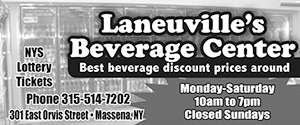Enabling
What is enabling?
You are enabling when you do something for your alcoholic/addict that they could and should
do for themselves. When you help someone to avoid the consequences of their actions, you are denying them the opportunity to learn that their behavior is inappropriate.
If you do something for someone who is unable to do it for them self, you are helping. If they could and should do it for them self, you are making them dependent on you.
A really good example of enabling goes like this. My alcoholic /drug addict used to joke that her job was to bring excitement into our life and it was my job to keep her out of jail. Here are some of the things that I did that made it easier for her to drink and do drugs:
I would buy and keep single serving bottles of her favorite whiskey hidden in the house to give to her so that she wouldn’t go out to a bar.
I would go out drinking with her and then drive her home in hopes of keeping her drinking under control.
I would lie about the fact that she was out partying with her friends when someone was trying to call her.
I used to blame myself for her drinking and drugging.
When she was out drinking and she would call me to pick her up, I would do it, even if it meant getting out of bed on a cold night.
I would pay bills that she ran up on my credit cards while buying drinks, meals and motel rooms for her friends.
I found her passed out on the floor; I would gather her up and put her to bed. Enabling makes things worse.
Enabling is insidious. Most of the time we operate in patterns of behavior without thinking about each individual action. For example, when we get into the car, most of us have an automatic pattern of putting on our seatbelt. Most people don’t start out doing these things for the alcoholic addict, but overtime, you start doing more and more things to save the person from negative consequences of their choices. What they didn’t realize was that they are just making it easier for the addicted to do exactly what they please with no negative repercussions.
After getting help, you will eventually learn that you had to change this behavior. When you realized what you were doing. Then you can decide it time to stop. The next time you find her passed out on the floor just leave her and leave the room. It will be the hardest thing you ever will have to do. Interesting things will start to happen. Once you stopped your behavior will change. Your alcoholic/drug addict will start experiencing the consequences of their actions. They will see you won’t come to their rescue any more. They will
see drinking and drugging isn’t as easy as it used to be.
Eventually they will get treatment or in a recovery program.
What if I stop enabling my alcoholic or addict?
Quitting enabling is difficult for you as well as for the alcoholic or addict in your life. Let’s look at some possible scenarios.
If you have been calling in sick for the alcoholic/addict, what happens if you stop?
If you cover up with, it’s someone elses fault if your drug addict is caught with drugs, what would happen?
If you have been paying bills for your alcoholic/addict, what happens if you stop?
If you loaned money to your alcoholic/addict what happens if you stop.
Your alcoholic/addict could get agrwith you
Your alcoholic/addict could lose their job.
Your alcoholic/addict could go out on a binge.
Your alcoholic/addict might leave you.
Your alcoholic/addict could seek help for their problem.
Your alcoholic/addict could lose their credit rating. Or it could affect your own credit rating.
We would all wish our alcoholic or addict to seek help. However, we often fear that it is more likely that they will become angry with us and become even more self-abusive.
In most cases, the worst is likely to happen. However, without the pain of dealing with the consequences of their behavior, what is going to motivate them to change? Certainly not continued enabling. If that were going to help them, they would have made changes before now.
It seems that until people feel the pain associated with their behavior, they do not change that behavior. Even then they may not, but the odds of change improve.
The choices they make in response to you discontinuing your enabling behavior could be even more painful for you in the short term than their continued drinking or drugging. That is only a decision you make. Is it worth the risk? On the other hand, alcoholism and drug addiction are progressive diseases. Most alcoholic and addicts continue to increase their substance abuse. Eventually, the things you fear may happen anyway, even if you don’t make chances in your enabling behavior.
Ultimately the choice is yours. Changing your enabling behavior can have a profound impact on the lives of everyone involved.
For more information call Wholistic Health and Wellness Program 613-575-2341







Reader Comments(0)